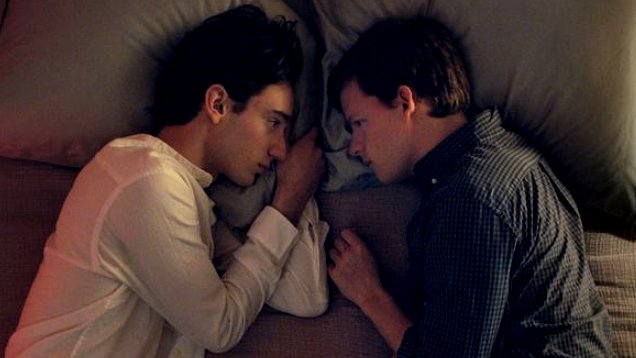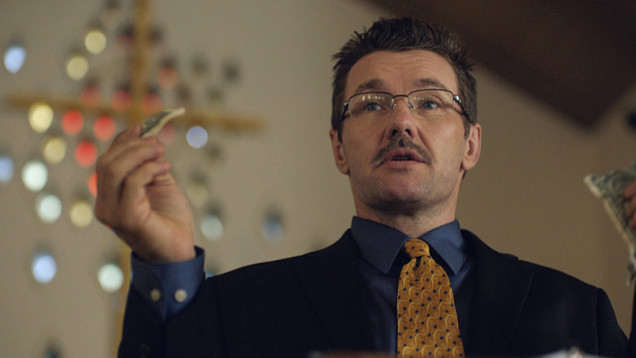Joel Edgerton’s gay conversion drama Boy Erased does more than preach to the converted

It is clear – well before a text insert appears late in the running time explaining that an estimated 700,000 LGBTQ Americans have suffered through gay conversion programs – that Joel Edgerton’s second feature film as a director is in part a work of activism. Or at least a socially conscientious drama fuelled by a bit of finger waving. No surprises there: an attempt to remove ideology from a story like this would be like trying to take the cream out of homogenized milk.
Adapting author Garrard Conley’s memoir, the drama in Boy Erased is triggered by Christians who believe ‘curing’ people of gayness is a) possible and b) commendable. The protagonist Jared (Lucas Hedges) is bundled off to a gay conversion program like a Russian dissenter whisked to the gulag.
And yet people of faith need not approach this carefully calibrated and affecting film believing a trap has been set. Edgerton doesn’t turn a blind eye to despicable things performed in the name of organised religion; among Boy Erased’s confronting sequences is a literalisation of the term ‘bible basher’ – which might have been funny if it wasn’t so shocking and the film around it so credibly built. But the director – following up his morally murky thriller The Gift, which cunningly wrestles at first blush predictable characters and situations away from stereotype – depicts Christian characters in ways that cannot be dismissed as mere caricature.
The protagonist’s god-fearing parents – pastor Marshall (Russell Crowe) and housewife Nancy (Nicole Kidman) – are not chalk outlines designed to insult or provoke the people they depict. They are nuanced and they challenge us; not to condone their behaviour but to attempt to view them as people who are more good than bad. In another recent film about gay conversion therapy – the shriller and over-rated The Miseducation of Cameron Post – the key villain is a Nurse Ratched-like camp director, played wickedly by Jennifer Ehle. She is evil with a capital E, missing a cackle and a fleet of flying monkeys.
The equivalent character in Boy Erased is conversion program leader Victor (Edgerton). He is also a villain, with no redeeming moral factors and an almost robotically unpleasant manner. We see no humanity in him nor in his rough-as-guts assistant (Flea). Nevertheless these characters are more credible, and thus more unnerving, than Ehle’s she-devil. If they are missing nuance, their wickedness is complicated by a broader acknowledgement that in a complex world wrong is often performed by people who believe they are right.

There is a brief scene involving a doctor who assures Jared that there is nothing wrong with him. She declares herself a believer in both God and science, explaining that it can be challenging to balance the two but never impossible. Her identity as a believer in is important, because Edgerton is letting us know that he comes in peace – resisting tarring all people of faith with the same bush.
Boy Erased does more than preach to the converted. The director understands that it is more difficult to try to understand characters (as this film mostly does) than it is have others react to them (as The Miseducation of Cameron Post mostly does). That understanding is best represented through Marshall and Nancy: the father who behaves rashly and ignorantly and the mother who eventually, after painstaking deliberation, reverts to her default position of instinctual love and protection. Conservative Christians who struggle with the fact that the world we all live in is populated by sexually diverse people are likely to relate to these characters. They can watch this film without feeling like they’ve been thrown to the wolves; they might even emerge more knowledgeable and compassionate.

















